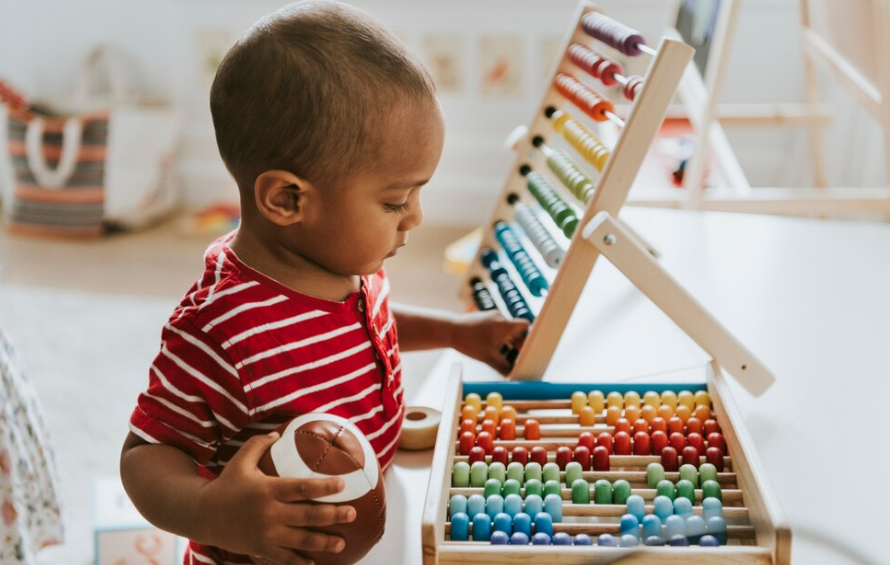In today’s rapidly evolving world, the ability to think independently and make decisions is more important than ever. The Montessori approach to education, created by Dr. Maria Montessori, offers a unique framework for fostering these skills in children. This method focuses on nurturing a child’s natural curiosity and allowing them to take ownership of their learning process. But how exactly does the Montessori approach cultivate independent thinkers? Let’s dive in.
Respect for the Child’s Autonomy
One of the core principles of the Montessori method is respecting the child’s autonomy. In a Montessori classroom, children are not treated as passive recipients of knowledge; instead, they are seen as active participants in their own learning journey. From a young age, children are encouraged to make choices about their activities and learning paths. This fosters a sense of ownership and responsibility, which is essential for independent thinking.
When children are trusted to make decisions—whether it’s choosing their own tasks or selecting materials to work with—they begin to develop confidence in their abilities. This confidence is crucial when they face challenges, as it encourages them to problem-solve and think critically on their own.
Hands-On Learning and Exploration
The Montessori method emphasizes hands-on learning, where children engage directly with materials and concepts rather than simply absorbing information from a textbook. This tactile approach encourages them to experiment, make mistakes, and learn through trial and error. By exploring materials and engaging with real-world problems, children develop a deeper understanding of concepts and become more capable of thinking independently.
For example, rather than just being told how a clock works, a child might use Montessori clock materials to physically move the hands and see the passage of time. This experiential learning helps children connect abstract concepts to real-life experiences, fostering both critical thinking and independence.
Freedom Within Limits
In a Montessori classroom, children are given the freedom to choose their activities within a set of clear guidelines. This balance between freedom and structure is key to developing independent thinkers. Children learn to make decisions based on their interests and needs, yet they also understand the boundaries of respect and responsibility.
This freedom to choose their own learning tasks encourages children to take initiative and practice decision-making skills. Over time, they begin to understand the consequences of their choices and become more thoughtful in their decision-making, which ultimately strengthens their ability to think critically and independently.
Mixed-Age Learning Environment
Montessori classrooms often feature mixed-age groups, where children of different ages work and learn together. This structure fosters a collaborative environment that allows younger children to learn from older peers, and older children to reinforce their learning by teaching younger ones. This peer interaction encourages children to approach problems from different perspectives, promoting creative and independent thinking.
Older children, when given the opportunity to help their peers, learn how to communicate their thoughts clearly and think critically about how to explain concepts. Meanwhile, younger children are encouraged to take initiative and problem-solve on their own. This dynamic supports the development of independent thinkers by allowing children to learn at their own pace while fostering leadership and mentorship skills.
Encouraging a Growth Mindset
Montessori education encourages a growth mindset—an understanding that abilities and intelligence can be developed through hard work and perseverance. In a Montessori classroom, failure is seen as an essential part of the learning process, not something to be feared. When children are encouraged to view challenges as opportunities for growth, they are more likely to take risks and think outside the box.
For instance, if a child struggles with a math problem, the teacher might guide them to think through different strategies, allowing the child to come up with solutions on their own. This process helps children build resilience and problem-solving skills, which are essential traits for independent thinking.
The Montessori approach fosters independent thinkers by respecting the child’s autonomy, providing opportunities for hands-on learning, and offering a balanced environment where freedom is coupled with responsibility. Through exploration, decision-making, and collaboration, children learn not only academic concepts but also critical life skills. As they grow in confidence and competence, they become equipped to tackle challenges with creativity and independence.
Frequently Asked Questions (FAQs)
1. How does Montessori education differ from traditional education? Montessori education focuses on child-centered learning, where children take responsibility for their learning through hands-on activities and self-directed exploration. Unlike traditional education, where teachers typically lead the lessons, Montessori educators act as guides, fostering independence and curiosity in the child.
2. Is Montessori only for young children? While the Montessori method is often associated with preschool education, it can be adapted for children of all ages, from infants to adolescents. The principles of Montessori, such as fostering independence and critical thinking, are valuable throughout a child’s educational journey.
3. Can Montessori methods be used at home? Yes! Montessori principles can be easily incorporated into the home environment. Simple adjustments, such as providing child-sized furniture, encouraging choice in daily activities, and using hands-on learning materials, can help parents support their child’s independent thinking.
4. Does Montessori promote social skills? Yes, the Montessori method promotes social skills through collaborative work, mixed-age groupings, and opportunities for children to share, help each other, and engage in respectful communication. Children learn the value of cooperation and empathy in a Montessori setting.
5. How does Montessori support emotional development? Montessori classrooms prioritize emotional development by providing a safe and nurturing environment. Children are encouraged to express their emotions and work through challenges independently, while also being guided in how to manage their feelings in socially acceptable ways.



